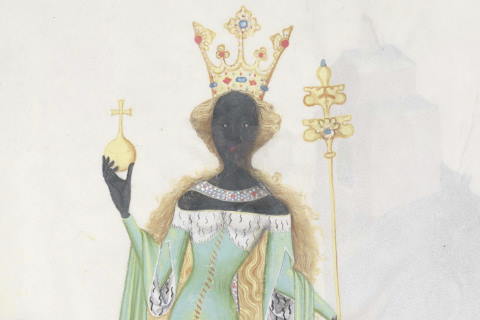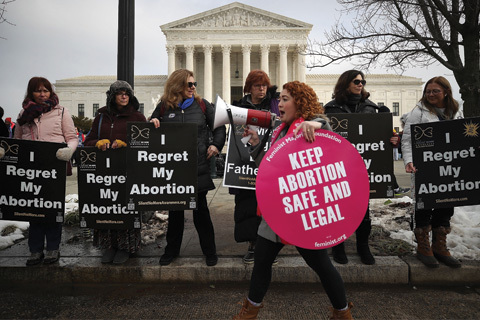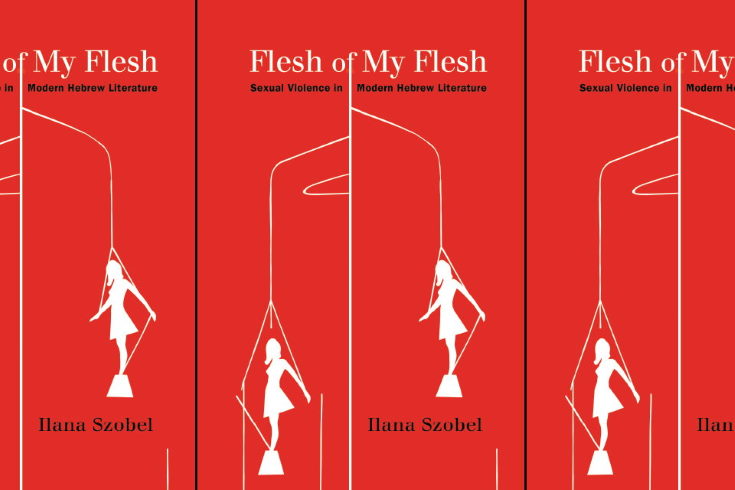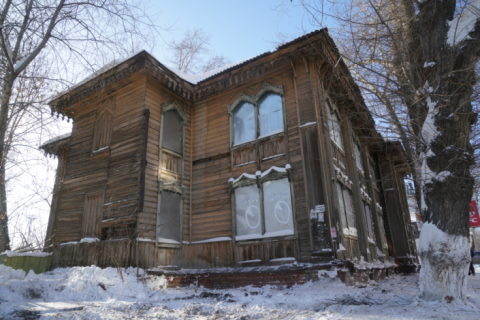Shanda! Ms. Magazine's Co-Founder Wrestles With Her Family's Secrets
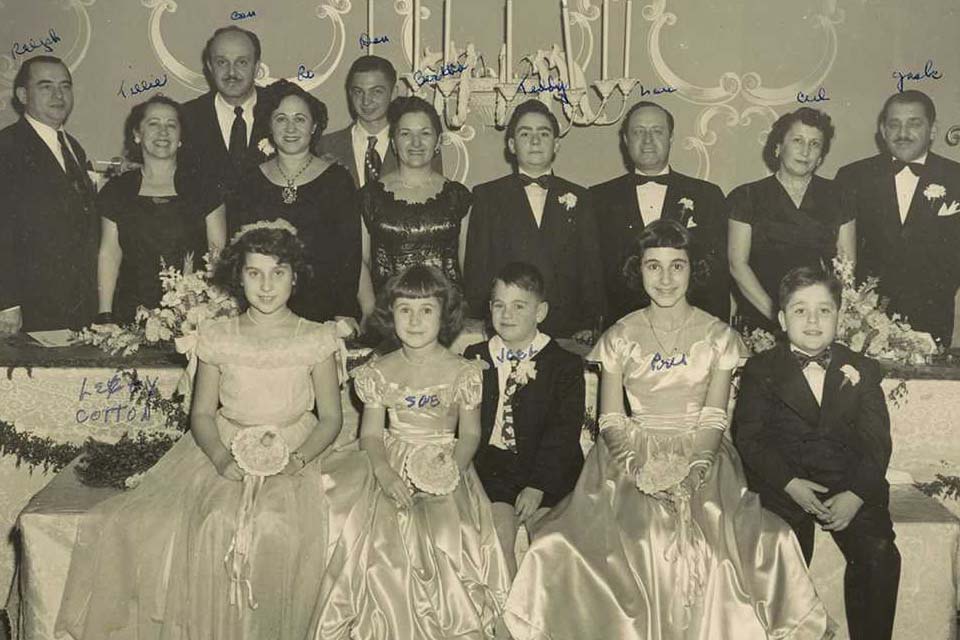
Pogrebin's extended family in 1948 at her cousin's bar mitzvah.
Photo Credit: Courtesy Pogrebin
Oct. 19, 2022
By Penny Schwartz, P'13
"I was raised with secrets. I was marinated in secrets," the pioneering feminist and co-founder of Ms. Magazine Letty Cottin Pogrebin '59 says. "Every family member I was close to in any way had been hiding something."
Now, at 83, Pogrebin is revealing all.
In her twelfth book, "Shanda: A Memoir of Shame and Secrecy," Pogrebin opens up about her parents' secret divorces, closeted homosexual relatives, and even the two abortions she had in her senior year at Brandeis.
Little is held back, though the effect is not salacious but salutary. "Shanda," which means shame in Yiddish, is Pogrebin's cri de coeur against the culture of silence and guilt that permeated her family life and the culture of American Jews more generally.
Pogrebin was raised in a large family of Jewish immigrants in New York City who celebrated Jewish holidays and lingered around the dinner table, schmoozing for hours.
"Sha! Sha!" a Yiddishism for shushing, the young Pogrebin was told again and again when her parents suspected she was about to divulge a family secret.
Sometimes, what was concealed was a religious transgression — the family ate out on Sunday nights at a non-kosher Chinese restaurant. But it could also be a secret about a cousin's mental illness, a nephew's homosexuality, or her mother not being merely sick, but dying of cancer.
A social justice activist for the past fifty years, Pogrebin helped found the National Women's Political Caucus, the Ms. Foundation for Women, and the Free to Be Foundation. She also serves on the national board of Brandeis' Women's, Gender, and Sexuality Studies program.
TJE spoke with her about her book and the role secrets have played in forging American Jewish identity.
For more on Pogrebin, read the Brandeis Questionnaire in Brandeis Magazine.
You started on this memoir five years ago after discovering a trove of family letters hidden in a cabinet in your study. What stood out?
My father's letters to my mother revealed that he wasn't the confident, successful man he appeared to be. He'd been posturing, finagling to maintain an image that was fundamental to Jewish masculinity — that of "a good provider." For the first time, I felt compassion for him. I saw the price he paid in stress from pretending to be something he wasn't.
My mother's letters underscored her shame about having only an eighth-grade education, being abused by her first husband, and hiding her divorce. I suddenly understood how much of her life was performative, motivated by her fear of shanda and her desire to measure up to the "real Americans" whose lives she imagined were perfect.
You were 12 when you learned that your parents were previously married. It turned out that your older sister was your half-sister, and you had another half-sister, your father's abandoned daughter. Can you describe the impact of those revelations?
They destroyed my ability to trust the adult world. Finding out that my parents were liars and all my relatives were in on their ruse shook my sense of security and made me unsure about what to believe.
On the other hand, the discoveries made me question just about everything and probably contributed to making me a writer, since digging under the surface of things is what writers do. I also grew to understand my parents' secrecy as a survival strategy common to the immigrant generation. You had to admire their talent for disguise and reinvention.
You reveal in your book that you had two abortions in your senior year when abortions were illegal. How did this affect you?
I never regretted my abortions. What I regret is that I was naive about birth control, the pill didn't exist in the '50s, and no doctor would prescribe contraceptives for an unmarried girl. We were all supposed to be virgins.
I also regret that when I found out I was pregnant, I decided I would kill myself rather than shame my family by bearing an "illegitimate child." I regret that I didn't know where to go or what to do or whom to confide in because abortion was never openly discussed. It was illegal, and it was a shanda.
But I don't regret that my roommate dragged me to our dorm counselor, a wise, nonjudgmental, no-nonsense refugee who somehow connected me to the abortion underground.
How did abortion affect me? Rather than having to raise a child alone before I was a grown-up, I graduated with my class. When I was ready, and my husband and I were sure we could support them, we had three children we fiercely wanted and loved.
Your mother died in 1955 when you were 15. At the memorial service for her at your home, you couldn't be counted as part of the minyan (quorum) required for public prayer because you were female. (Traditional Jewish law requires the minyan to be men.)
That was my first encounter with sexism. I'd graduated from Hebrew high school and attended two years of yeshiva, but all my Jewish education and status didn't qualify me to count as a real Jew. This seemed patently unfair and outrageous.
I counted myself out of organized Judaism. I practiced "home-based Judaism." I didn't join a synagogue. My kids didn't become bar or bat mitzvahs.
But you re-connected to your Judaism through your feminism.
When I was at Ms. Magazine [founded in 1972], I became aware of cadres of strongly Jewish-identified women who were fighting the patriarchy in the synagogue, expanding their spiritual lives, and marrying ritual traditions to invention and inclusion, all battles against the unequal treatment that had made me leave my faith community. What reconnected me to Judaism was the Jewish feminist movement.
In "Shanda," you draw a connection between your family's secrets to the theme of secrecy in Jewish history.
Hiding is our heritage. Think of how many biblical characters keep secrets or knowingly conceal the truth about themselves or others. Jacob pretends to be Esau to get Isaac's blessing. Leah is hidden under the bridal veil.
During the Shoah [Holocaust], Jews hid in forests or behind false walls or were hidden by righteous gentiles or hid behind new identities and forged papers. In America, Jewish refugees changed their names. Survivors kept their wartime experiences secret from their children.
No wonder my parents and others of that era felt they had to cover up the truth about themselves in order to flourish. They didn't want gentiles or even their fellow Jews to see their imperfections.
Today, many of us still feel the misdeeds of one Jew shame us all. I have only to say three names: Harvey Weinstein, Jeffrey Epstein, Bernie Madoff.
Do you see "Shanda" as a cautionary tale about the dangers of secrecy and shame?
Yes, in the sense that secrets are debilitating and shame-based secrets are the most corrosive. They weigh us down. I wish everyone the lightness and liberation of a secret-free life.
